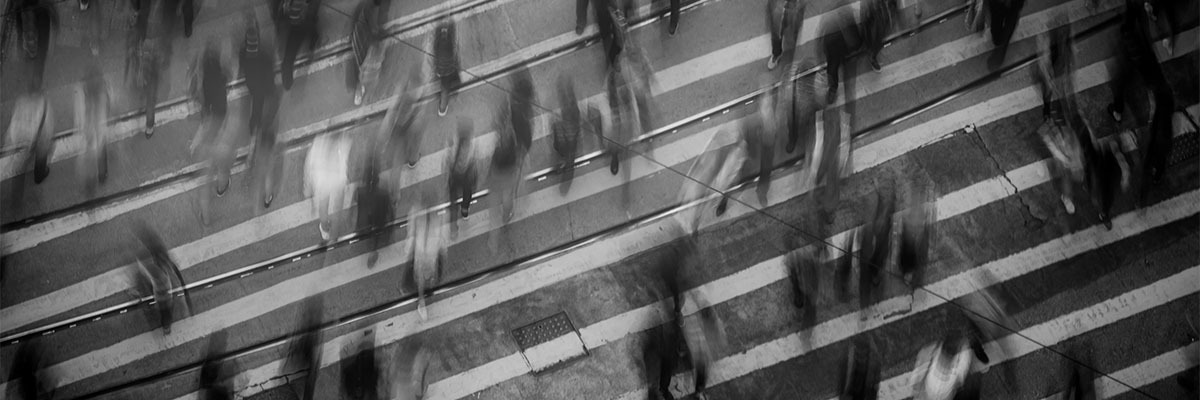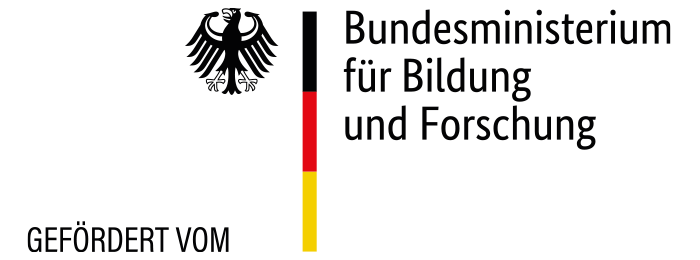
The collaborative research project „Radicalization and Spaces” (RadiRa) is carried out in cooperation by the University Bielefeld and the University of Applied Sciences Münster. The project aims to analyze the role of urban environments – more specifically of social spaces – regarding Neo-Salafist radicalization processes. By laying the focus on the action level of space as a factor for radicalization, the project intends to broaden the current state of research. It is this specific perspective that will create a wider understanding of radicalization processes. The project is funded by the Federal Ministry of Education and Research (BMBF) and runs until September 2024.
Project Motives
The scientific and profession-specific debate regarding radicalization tendencies revolves around two relevant factors of Islamist radicalization. Firstly, it discusses individual determinants or biographical processes like a life crisis, relative deprivation, or discrimination and secondly, it thematizes the relevance of group integration and group-related processes in relation to radicalization careers.
It is noticeable, that a clear reference to space within the examination of radicalization in scientific work has so far not been considered. Focusing on this research gap, the collaborative research project “RadiRa” is dedicated to examining the risk of the susceptibility to radicalization processes within a consequent socio-spatial perspective. By this, a coherent and direct impression of burdened quarters and the day-to-day life of Neo-Salafist actors will be acquired.
Our Approach
1. In three major cities located in Germany the local population will be examined through standardized surveys. The focus of these surveys lies on the relation between the susceptibility to radicalization processes and authoritarianism, distance to democracy, experiences of discrimination, and religiousness. The population survey will be combined with surveys of social and cultural institutions situated in the relevant quarters. This allows us to compare characteristics of offer landscapes in general with those of the quarters and to combine these findings with the perspective of the residents. To make sure, that the susceptibility to radicalization will be identified correctly, there will be wide-ranging Pre-Tests in 2021 and 2022.
2. Each quarter will be analyzed using extensive ethnographic studies. One project team member will move into each relevant quarter for one year to examine the locally active Neo-Salafist scene. The goal is to investigate their day-to-day life as well as their interaction within the city society. This substudy is aimed to provide insights into the daily dynamics in which Neo-Salafist scenes are established.
3. Structured interviews with experts and service users of the different quarters as well as participatory observations and the analysis of evaluation reports of the institutions concerned will be used to develop a practice strategy. This substudy provides the basis for the practice transfer while at the same time securing the findings of the standardized surveys.
Practical relevance and knowledge transfer
Simultaneously with the survey phase, the findings of the empirical substudies will be linked to the practice level. This theory-practice-transfer is a result of the development of prevention and intervention practice strategies for community-oriented social work practice in the context of Neo-Salafist radicalization tendencies within neighborhoods. Next to the empirical findings, the drafting of these practice strategies is based on international practical research as well as the active collaboration with selected actors of practice, that work together in a project advisory board.
The linkage to social work practice takes place in a yearly advisory board meeting as well as in a project-accompanying and continuing exchange between single actors. Because of this consistent exchange of experience and the successive discussions of results, the prevention and intervention strategies are worked out. At the onset and the finishing of the neighborhood surveys phase, a Kick-Off Workshop will be held with social work institutions.
Furthermore, the online platform www.radikalisierende-raeume.de will be made accessible for the (professional) public and will continuously provide an overview of the project findings including the practical instruments. In addition, further information will be released, among them publications as well as studies and findings coming from complementing teaching research projects.




